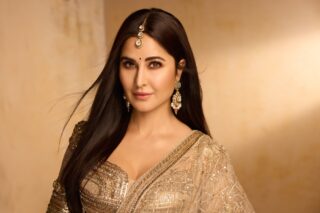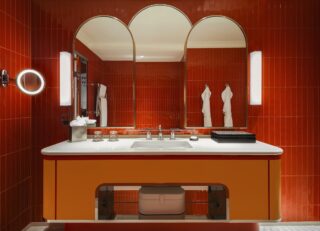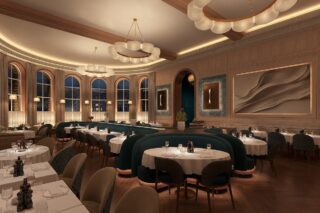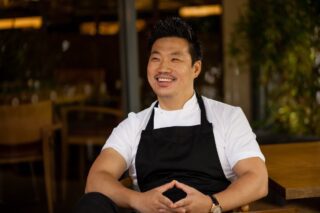This website uses cookies so that we can provide you with the best user experience possible. Cookie information is stored in your browser and performs functions such as recognising you when you return to our website and helping our team to understand which sections of the website you find most interesting and useful.
How La Manufacture Cogolin became luxury’s best kept secret
By Shivani Dubey | 7 May 2025 | Design, Style
La Manufacture Cogolin has designed rugs for the likes of Audrey Hepburn and The Vatican. Here, we learn how the French rug atelier has stood the test of time
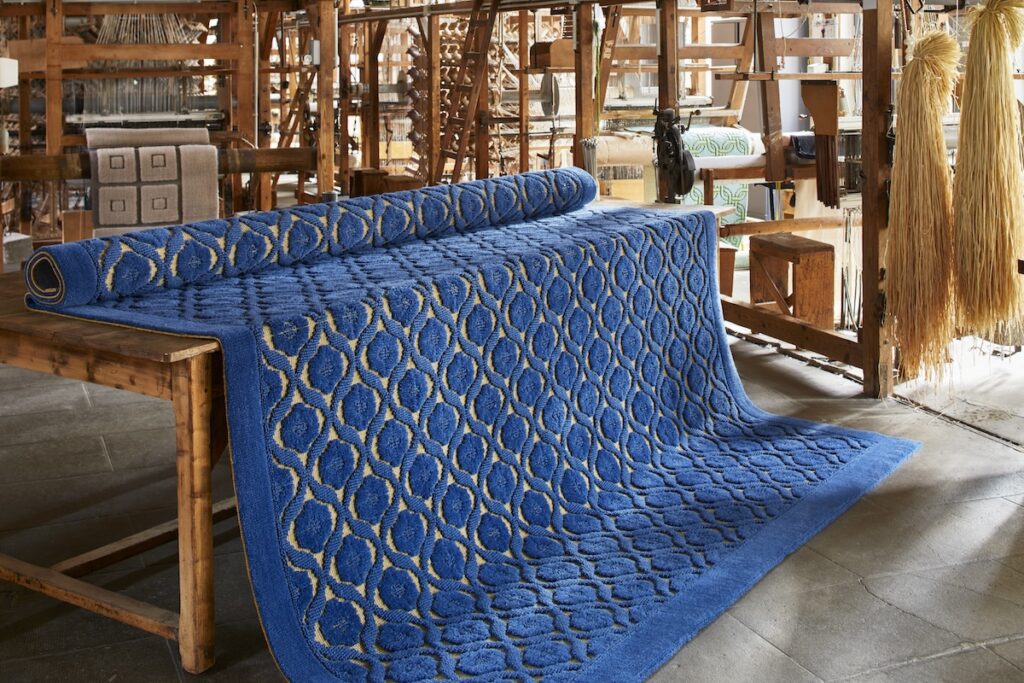 Heritage French rug atelier La Manufacture Cogolin has just celebrated its momentous 100 year anniversary. This is a brand with a distinguished history – however, you would be forgiven for not immediately knowing much about it. This is by design, as La Manufacture Cogolin is luxury’s best kept secret.
Heritage French rug atelier La Manufacture Cogolin has just celebrated its momentous 100 year anniversary. This is a brand with a distinguished history – however, you would be forgiven for not immediately knowing much about it. This is by design, as La Manufacture Cogolin is luxury’s best kept secret.
Known for creating authentic and sustainable artisanal designs through the 19th century art of Jacquard weaving, this brand has created designs for everyone from the White House, the Vatican and the Élysée Palace to celebrity clients like Audrey Hepburn and Karl Lagerfeld. And in an era of mass production, La Manufacture Cogolin has not only stood the test of time, but also has continued to innovate while preserving its rich and lasting legacy.
Here, we speak with the brand’s managing director Sarah Henry to learn more about La Manufacture Cogolin – its focus on sustainable production, working in an all-female workshop, designing rugs for such a distinguished clientele and becoming luxury’s best kept secret.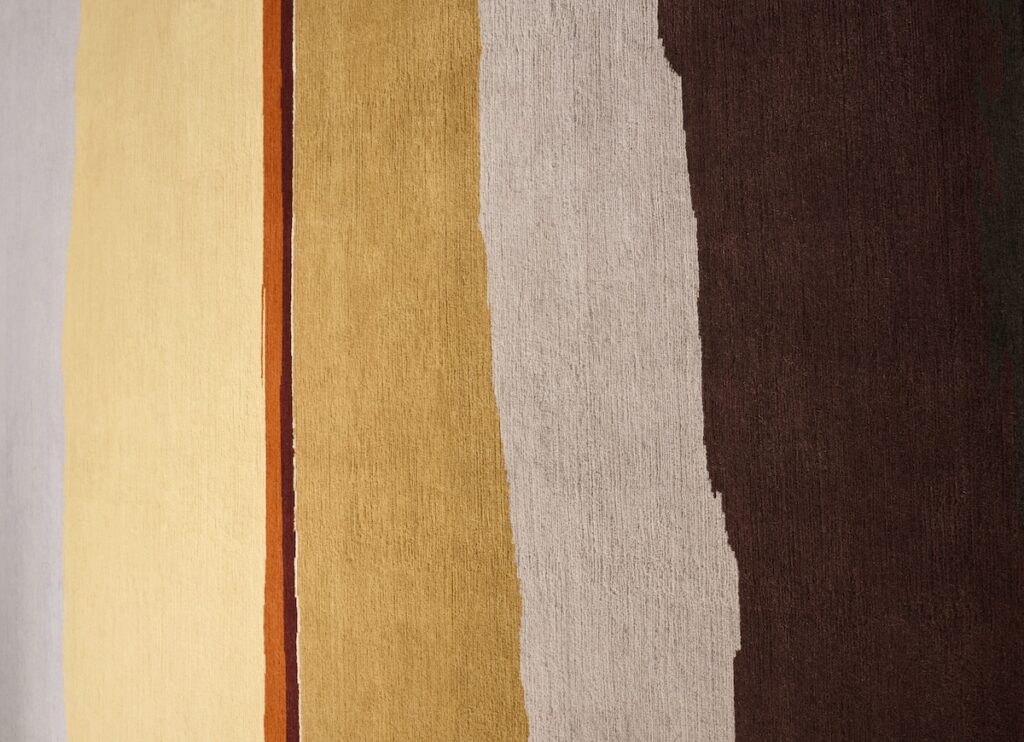 La Manufacture Cogolin has been manufacturing bespoke rugs for over 100 years. What do you make of this mass consumer shift towards slow and sustainable interior designs and trends?
La Manufacture Cogolin has been manufacturing bespoke rugs for over 100 years. What do you make of this mass consumer shift towards slow and sustainable interior designs and trends?
In a world dominated by industrially-produced environments and superficial digital connectivity, I think that people are feeling a bit lost, and are looking for authenticity and materials that ground them. Hand-made craft has become rare and therefore more valued than when it was the norm. People are also becoming more aware of the ecological and human cost of mass-production in second- or third-world countries, and the current US tariff situation is certainly opening eyes about where goods come from. We have always been very transparent about our hand-weaving atelier in the south of France, which is one of our most important selling points, as it is how we are different from most other companies in the world.
La Manufacture Cogolin has designed rugs for everyone from Audrey Hepburn to the Vatican. Is there a difference between designing a rug for luxury hotels and celebrities versus sacred institutions?
Each project is different. We try to get as much information as we can in order to recommend the most appropriate construction/weaving method and materials for the rug use. Then the colors and design will depend on the other elements in the space. We most often work with interior designers who have a pretty specific idea of what they are looking for. Our collections have a quite modernist perspective on design, so we attract a residential and even hospitality clientele looking for that style, but most of the rugs we have made for institutional projects – embassies, palaces, sacred institutions – are in a very traditional savonnerie-style. The beauty of bespoke production is that it can be adapted to each project.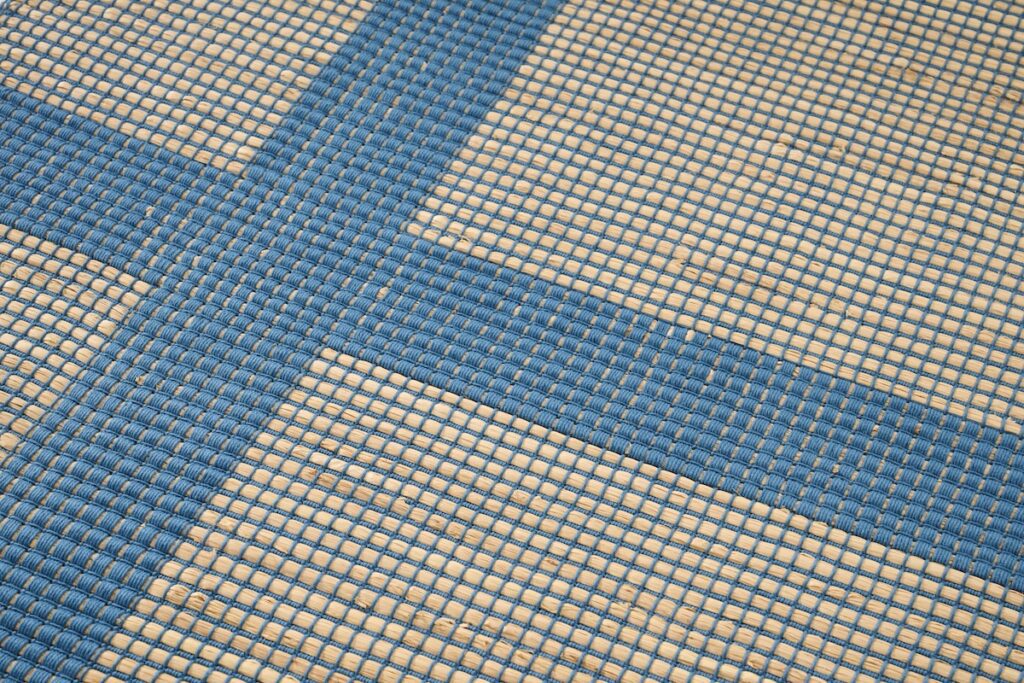 You have some of the most exclusive clientele in the world. The brand’s existence is almost like a secret among consumers. Is that by design?
You have some of the most exclusive clientele in the world. The brand’s existence is almost like a secret among consumers. Is that by design?
There is something quite chic about being a “best-kept secret” and having our clients as our best brand ambassadors. We are lucky to have a quite loyal clientele, which speaks to the uniqueness of our products. As our resources are limited, we invest very little into marketing and rarely advertise. We prefer to invest in the skills of our production team, and in a more personalized outreach directly to well-targeted interior designers, as well as in bespoke service to a limited number of retail clients. This corresponds best to who we are as a company and how we work.
For a brand with such a rich history, how do you make sure it is constantly innovating with the times while also preserving that legacy?
One of the secrets to our success has been the ability to conserve a strong identity while evolving with the times. As a creative director, I prefer working in a context when the “rules” are clear rather than a “do anything” situation – I think that true creativity comes from finding innovative solutions within constraints. La Manufacture Cogolin has a modernist legacy, a particular approach to materials, and a very unique way of Jacquard weaving. So for each project or collection, we respect our legacy – which gives solid design direction – while working to make something that is relevant in a contemporary context. Our style is quite timeless and bridges a lot of different decorative styles, depending on the colours used, so whatever we do is meant to be versatile and last for a very long time.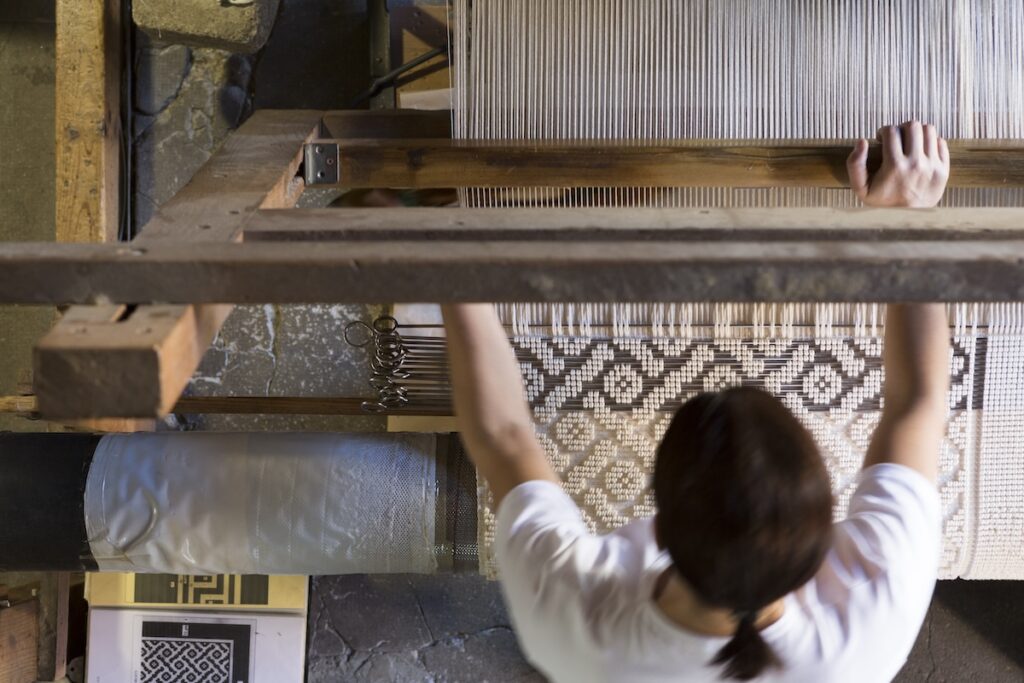 La Manufacture Cogolin creates sustainable designs in all female workshops. How did that come to be? And what practises is the brand employing to ensure sustainability?
La Manufacture Cogolin creates sustainable designs in all female workshops. How did that come to be? And what practises is the brand employing to ensure sustainability?
Our atelier has always employed exclusively women as weavers. In researching our archives for the book published last year on 100 years of our history, I found the very first company brochure from 2024, as well as an interview with Jean Lauer, the owner of the company from 1928 until his wife Irma Lauer succeeded him in 1962, and both texts speak of the particular virtues of women in weaving – patience, dexterity, attention to detail, teamwork … While this may be a bit of a generalisation, it is still true today.
Likewise, sustainable production has always been part of our standard practice. As our rugs are entirely hand-made, our primary energy expense is lighting. In 2013/2014 we did extensive renovations of the workshop that improved our energy efficiency. We have always used natural materials such as wool, cotton, jute, linen, and silk, sourced through a sustainable supply chain. These materials are long-wearing and qualitative, as our rugs are made to last for decades, if not longer. We limit waste and re-use or re-purpose everything we can – from yarns to packing materials – as it makes good economic sense.
How do historic ateliers such as yourself manage to still maintain a dedication to slow and deliberate artistry in an era of mass production?
It is not a simple thing to perpetuate an ancestral craft. Our Jacquard mechanisms are nearly 150 years old. If we need to replace something or make a repair, we have to source parts custom-made by woodworkers or metal workers to fit our looms. Our artisans don’t come from schools that teach our craft, they are all trained within our atelier, and the cost of labour in France is one of the most expensive employment costs in the world. Everything is a long and slow process, driven by a passion for what we do. It’s the opposite of industrial logic, driven by the search for “better, cheaper, faster” solutions. We are proud to continue the legacy of an atelier that has worked with some of the most recognised designers, architects, decorators and artists of the 20th and early 21st century, and we seek out like-minded clients who appreciate the full package of what we offer: the heritage, rarity, exceptional quality, and bespoke service of French artisanal production.



